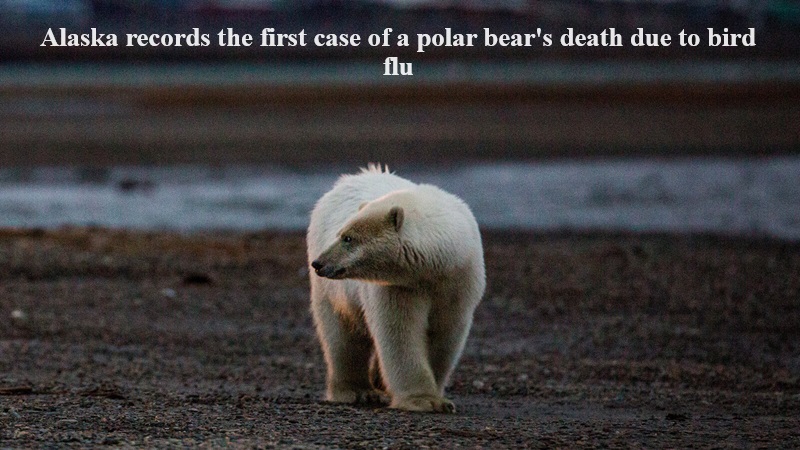
Alaska has reported the first case of a polar bear’s death attributed to bird flu, specifically highly pathogenic avian influenza (HPAI), raising concerns among experts about the vulnerability of this already stressed species. The polar bear succumbed to H5N1, a deadly strain of avian influenza, contracted through scavenging on bird carcasses carrying the virus. The implications of the infection spreading pose a potential threat to the Arctic population of polar bears, which is already grappling with the challenges of climate change.
Officials from the Division of Environmental Health confirmed the death in December after discovering the deceased polar bear in Utqiagvik, the northernmost town, in October. While previous cases of black and brown bears contracting the virus have been documented, the situation is more alarming with polar bears due to their vulnerable status. The loss of sea ice habitat has already adversely affected their population, and additional deaths from the bird flu could exacerbate the challenges faced by this species.
Alaska’s state veterinarian, Robert Gerlach, expressed concerns that the infection might have already spread among other polar bears, emphasizing the need for monitoring and intervention. The H5N1 virus, initially identified in China in 1996, has become a global concern, with a new variant emerging in 2020 and spreading to North America in 2021, causing significant avian deaths and impacting various mammals.
Monitoring the virus among polar bears is challenging due to their habitat, but the risk of transmission remains relatively low as they are solitary animals. However, changes in feeding behavior, such as increased consumption of seabirds due to reduced sea ice, raise concerns about potential exposure. Pollution adds another layer of vulnerability, as anthropogenic chemicals accumulate in the animals’ high-fat diets, affecting their immune systems.
Andrew Derocher, a professor at the University of Alberta, highlighted the compounded challenges for polar bears, emphasizing that a bear with a weakened immune system, possibly due to nutritional stress, may find it more challenging to survive exposure to avian influenza. The case serves as a stark reminder of the intricate ecological interplay and the potential threats faced by vulnerable species.

Post Your Comments